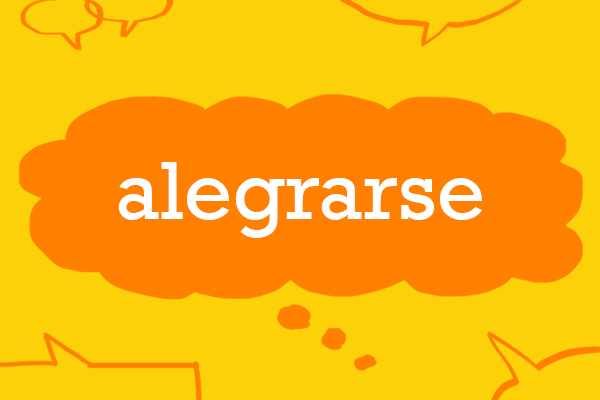This week’s Spanish word of the week is alegrarse.
Alegrarse is a reflexive verb that means to be pleased or to be glad.
To hear how alegrarse is pronounced, you can click the icon below:
It’s good to be able to express your pleasure at someone else’s good fortune or success, and alegrarse is just the word for such occasions. It’s related to alegre, happy, which you probably already know.
Entonces, ¿te gusta el regalo? Me alegro. So, you like the present, then? I’m glad.
When you’re pleased for someone, you use alegrarse with por:
¡Aprobé! – Me alegro tanto por ti. I’ve passed! – I’m so pleased for you.
When you haven’t seen someone for a long time, the standard phrase you use is:
Me alegro de verte. It’s good to see you, or I’m pleased to see you.
And if you’re really pleased about something, you add on muchísimo – very much.
Me alegro muchísimo de verte después de tanto tiempo. I’m delighted to see you after such a long time.
As with other verbs expressing emotions, you use de que and the subjunctive after alegrarse when you’re pleased about what someone else has done:
Me alegro de que hayan ganado. I am glad (that) they have won.
Se alegró de que fuéramos. He was glad that we went.
Come back next week to read about our next Spanish word of the week!




collins_dictionary_official
The home of living language. #wotd #wordlovers #collinsdictionary
Read our word of the week definitions and blog posts: